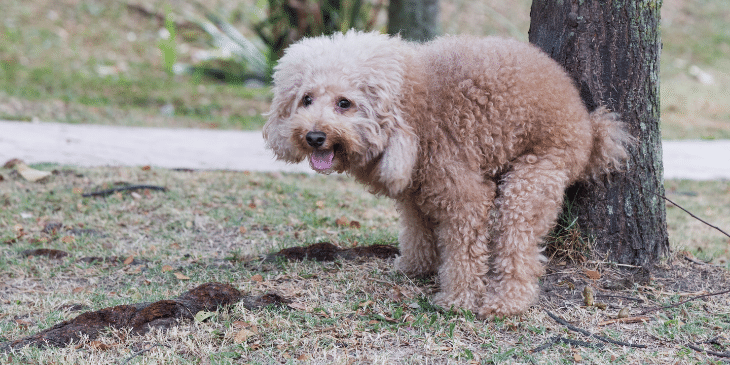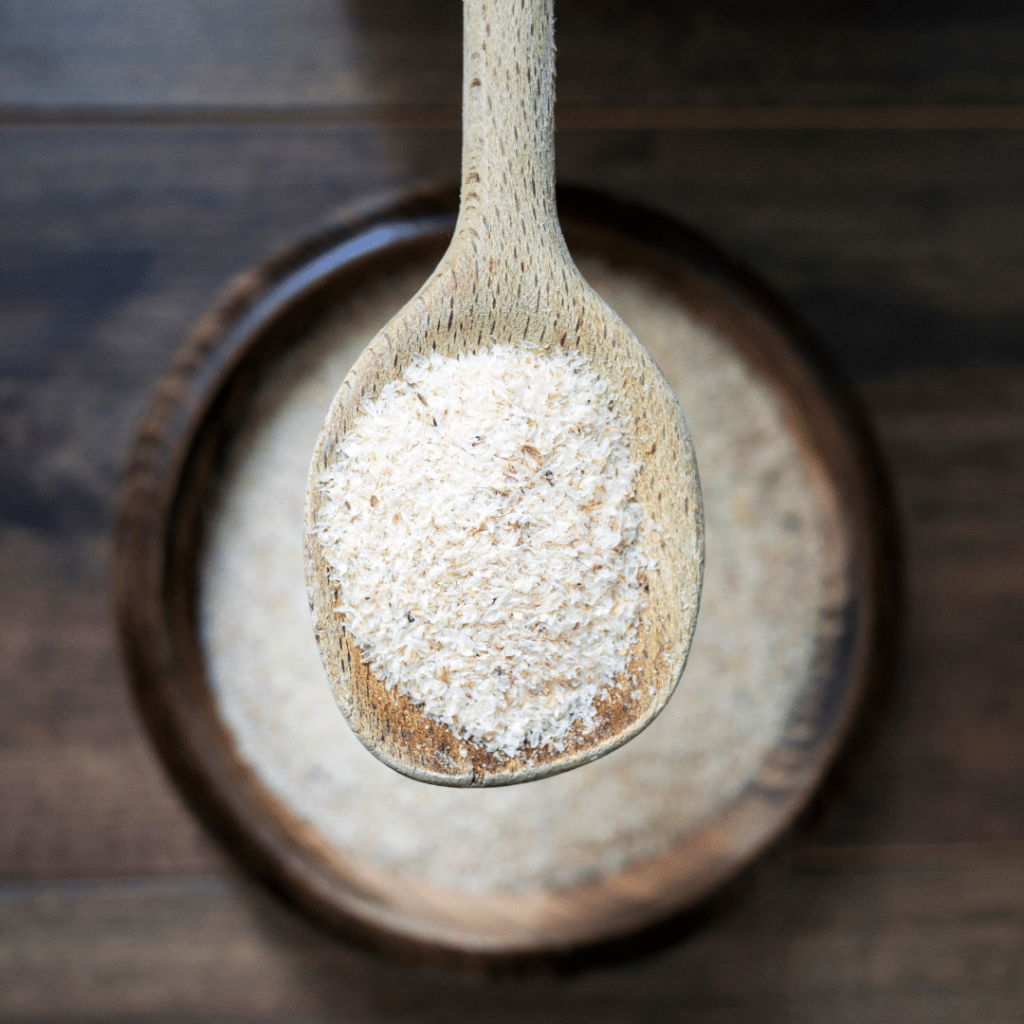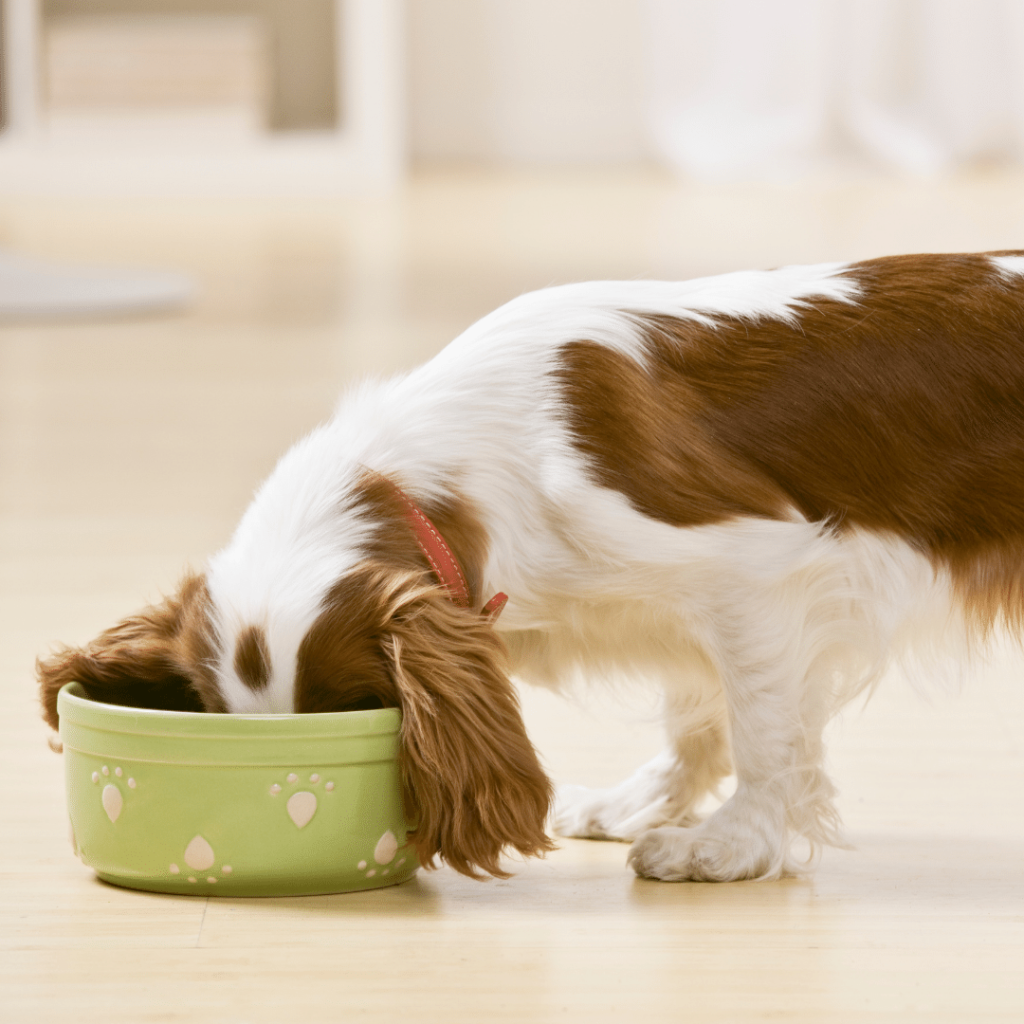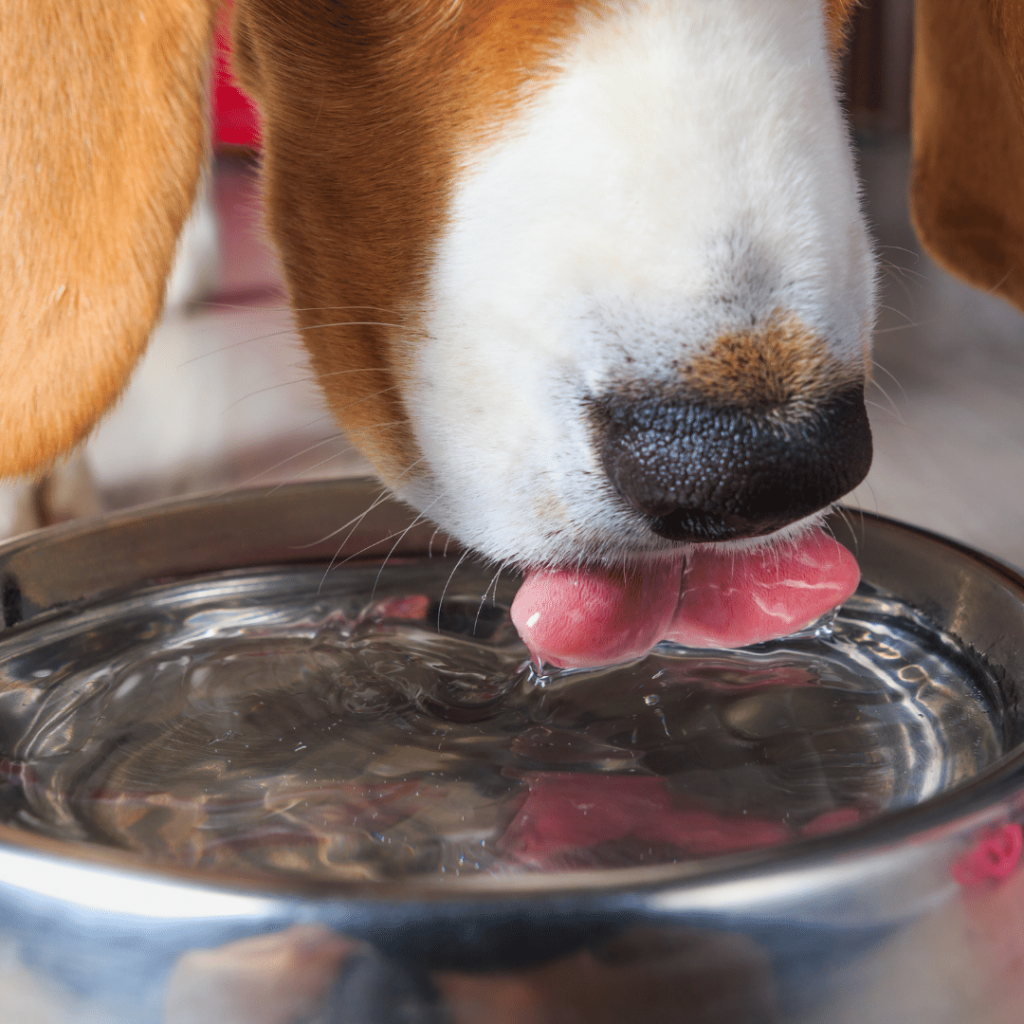Metamucil for Dogs | Can I Give My Dog Metamucil?

Contents
Dogs can experience occasional constipation, just like humans. In many cases, irregular bowel movements in dogs are caused by dehydration, lack of exercise, or poor diet.
Metamucil is a brand name fiber supplement made from psyllium husk. Most of us have used it as a laxative to treat occasional constipation at one time or another.
But, can you give Metamucil to a constipated dog? How do you use Metamucil for dogs? And, are there any side effects? Here’s everything you need to know.
Metamucil for Dogs: Is it Safe?

Metamucil is safe for dogs, but be sure to choose the original, unflavored and unsweetened formula.
Yes, Metamucil is safe for dogs with constipation. You can give your dog Metamucil at home, but be sure to choose the original, unflavored and unsweetened formula. Avoid formulas that contain chocolate or artificial sweeteners like xylitol, which are toxic to dogs.
Metamucil is a brand name bulk fiber laxative made from psyllium. Unflavored, unsweetened psyllium is also available in generic form, which is also fine to give your dog.
Psyllium is an insoluble fiber that comes from a plant called Plantago ovata. It passes through the digestive tract without breaking down or being absorbed. Instead, it absorbs water. This makes your dog’s stool softer and bulkier, so it’s easier for him to poop.
Interestingly, psyllium can also relieve diarrhea in dogs by absorbing excess moisture in the digestive tract. It’s a common over the counter home remedy recommended by vets for various gastrointestinal issues in pets.
How Much Metamucil Should I Give My Dog for Constipation?

The best way to administer Metamucil (psyllium) to your dog is to mix it in with his wet food.
Here’s how much Metamucil to give your dog for constipation:
- Small dogs up to 20 pounds: 1/2 teaspoon of Metamucil twice each day
- Medium dogs from 20-40 pounds: 1 teaspoon of Metamucil twice each day
- Larger dogs over 40 pounds: 2 teaspoons of Metamucil twice each day
The best way to administer psyllium/Metamucil to your dog is to mix the correct dosage into with his wet food every morning and night. You can also mix the psyllium powder into your dog’s water, but it may be more difficult to ensure he gets the entire dose. Generic Metamucil is fine for dogs, as long as it’s pure, unflavored and unsweetened psyllium powder.
Allow up to 72 hours for the Metamucil to do its job. Make sure your dog has plenty of water available at all times and encourage him to drink as much as possible.
What Are the Side Effects of Metamucil for Dogs?

Be sure your dog has access to water if you give him Metamucil. Severe dehydration is possible if he doesn’t drink enough.
Metamucil, or psyllium, has very few side effects in dogs. However, it may cause flatulence or diarrhea, especially if you give too much or use it too often.
Be sure your dog has access to water if you give him Metamucil. Severe dehydration or esophagus blockage are possible if he doesn’t drink enough, and that could lead to serious health issues.
Never administer Metamucil to a dog who is already dehydrated. Avoid all laxatives and seek medical care immediately if you suspect that your dog has colitis, an obstruction, or has eaten something toxic.
Although Metamucil is generally considered safe, it’s always a good idea to consult with your vet prior to giving your dog any medication, especially if he has a health condition.
FAQs About Constipation in Dogs
Here are some of the most commonly asked questions about constipation in dogs.
What causes constipation in dogs?

Excess weight and lack of exercise are common causes of constipation in dogs.
Constipation in dogs can be caused by a variety of mild to severe health issues, including:
- Insufficient exercise
- Excess weight
- Full, impacted, or abscessed anal glands
- Dehydration
- Ingestion of bones, hair, grass, plastic, or other items that may become lodged in the digestive tract
- Lack of grooming leading to matted hair around the anus
- Certain medications
- Rectal tumor or trauma to the pelvic region
How can I tell if my dog is constipated?

A dog that’s constipated often strains, cries, hunches over awkwardly, or seems generally uncomfortable when he’s trying to have a bowel movement.
If your dog’s stool is hard, small, and dry, he is probably constipated. You may also notice that he strains, cries, or seems uncomfortable when he has a bowel movement. He may even crouch or hunch awkwardly when trying to poo.
Dogs will normally have one or two bowel movements every day. If your dog is pooping less often, it could be a sign of constipation.
It’s important to know that a dog with a bowel obstruction may also appear to be constipated. If your dog’s symptoms include vomiting, lack of appetite, drooling, severe abdominal pain, or lethargy, go to the vet immediately. This condition is often life threatening and should be addressed right away.
How can I prevent constipation in my dog?
Here are five things pet parents can do on a daily basis to prevent constipation in their dog:
- Provide a high-quality diet that’s rich in soluble fiber.
- Maintain a healthy body weight.
- Encourage an active lifestyle, especially a long walk each day.
- Encourage your dog to drink plenty of water and provide wet food in addition to kibble.
- Provide a probiotic supplement to maintain good digestive health.
What else can I give my dog for constipation?

Pure pumpkin puree is high in fiber and contains lots of moisture, so it’s a great home remedy for dogs with constipation.
In addition to psyllium/Metamucil, the following home remedies are also helpful for dogs with constipation.
- Pumpkin: Pure pumpkin puree (not pie filling) is high in fiber and contains lots of moisture, so it’s a great home remedy for dogs with constipation.
- Probiotics: Probiotics are excellent for your dog’s overall digestive health and may help to gradually relieve constipation and diarrhea.
- Laxatives: Besides Metamucil as directed above, other laxatives can also be used to treat your dog’s constipation. Check with your vet for dosage and recommendations.
- Exercise: Getting your dog moving will boost blood flow and may get his bowels moving to relieve his constipation.
- Canned Dog Food: Canned dog food has more moisture than kibble, so it’s helpful for constipation and softening hard stools.
- Water: Proper hydration is essential for softening the dog’s stool and encouraging a bowel movement. Encourage him to drink as much water as possible and consider moistening his kibble, too.
How do vets treat constipation in dogs?
Usually, the vet will begin with mild treatments similar to those outlined above, such as hydration, fiber, and mild laxatives. In more severe cases, an enema, medications that activate the colon, and/or manual removal of the impacted stool may be administered. In extremely rare cases, surgery may be required .
When should my dog see the vet for constipation?
Occasional constipation in dogs probably isn’t a big deal. However, if your dog is constipated frequently or goes more than 72 hours without producing a bowel movement, there may be an underlying health issue. Make an appointment with your vet so he can address the issue before it becomes serious.
Remember, any time your dog’s constipation is accompanied by vomiting, loss of appetite, weight loss, drooling, lethargy, abdominal pain, or bloating, head to the emergency vet immediately. These symptoms could indicate poisoning or a life-threatening intestinal obstruction.
Final Thoughts
At the end of the day, your dog’s health and safety are what’s most important. If you are concerned about his symptoms, give your vet a call- even if it’s just for your own piece of mind. That’s what he’s there for!

I was not able to find unflavored brand name metamucil 9 orange flavored and/ sugar-free) but did have equate brand- however its the ingredients listed in this order are sugar, psyllium and silica. Ok to give to dog or keep looking for metamucil brand name?
Denise! The off brand should be just as fine since the Psyllium husk is what we are after. Also, Amazon may have some available online. I’ve updated the article with a link to this product: http://amzn.to/2Bpc70U
I hope your puppy gets feeling better. Hugs.
can I just add the Metamucil to his water
Can I just mix the metamucil with water?
Thank you.
Is this 1 tsp dry Metamusil added to 8 oz water per 50 lbs? Or do you mix 17 gm (2 1/2 tsp) dry Metamusil with 8 oz water, and then give 1 tsp per 50 lbs?